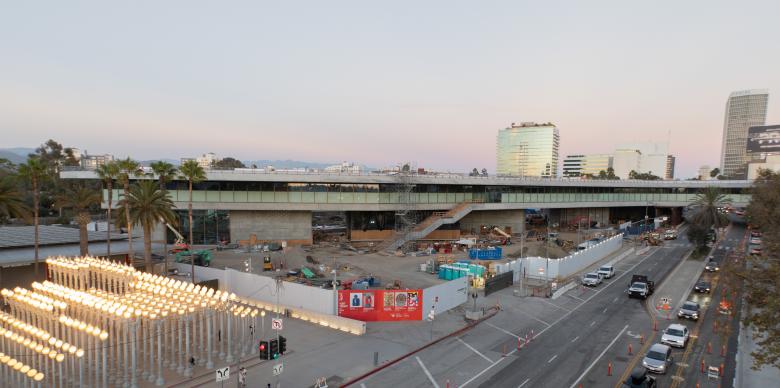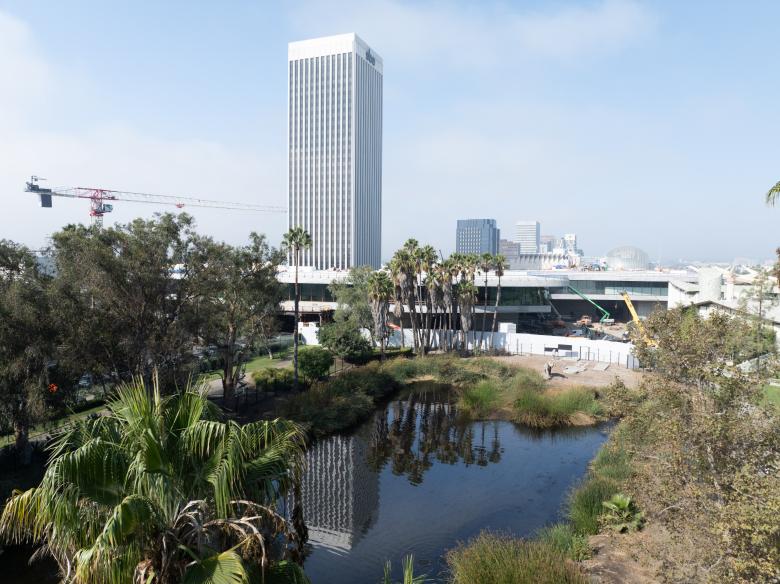Opening date of April 2026 also announced
Scaffolding Comes Down at LACMA
The Los Angeles County Museum of Art (LACMA) has announced that, four years after construction commenced, the scaffolding has been removed from the Peter Zumthor-designed David Geffen Galleries, which will become the home of LACMA's permanent collection when it opens in April 2026.
We've been covering LACMA's expansion plans for a while, ever since details of Zumthor's initial design were unveiled in June 2013. While the tar-like puddle of a plan has basically been maintained all the way to the final design, the biggest change in the interim was the early decision to break out of the confines of LACMA's property and span Wilshire Boulevard. With the scaffolding coming down, the appearance of the bridge-like building can now be grasped by LA motorists, as in the photograph at top.
This month's milestone coincides with an approximate construction progress of 90%, per a statement from LACMA, with the museum anticipating the completion of major construction by the end of the year and being able to start moving into the building in early 2025. With 110,000 square feet (10,220 m2) of gallery space across the single, elevated exhibition level, it will take LACMA a full year — once building systems are commissioned — to fill the David Geffen Galleries with artworks from its permanent collection.
The approximately $650 million project doubles LACMA's gallery space, with another 110,000 square feet (10,220 m2) combined in the Broad Contemporary Art Museum (2008) and Resnick Exhibition Pavilion (2010), both designed by the Renzo Piano Building Workshop. In addition to the galleries spread across its elevated floor, the Zumthor expansion includes three restaurants/cafes, the LACMA Store, a 300-seat theater, and the W.M. Keck Education Center, all in pavilions at ground level, like the one visible in the above photograph.
On top of the $650 million budget is a $65 million contingency meant to cover any damage to the adjacent La Brea Tar Pits during construction. Zumthor's initial plan was inspired by the tar pits but also cantilevered over them; it was concerns over damage that pushed him to modify the plan and subsequently span Wilshire Boulevard. While construction cranes had to be moved in early 2021 “due to unique conditions presented by the tar pits at the site,” and excavations did lead to the discovery of fossils later that year, it does not appear that there was any damage to the tar pits during construction of Zumthor's building.


